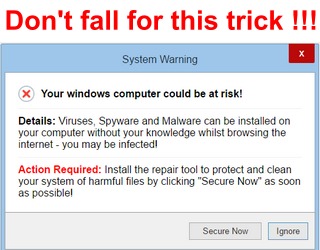|
As the old cliche goes; “An ounce of prevention, is worth a pound of cure.” Learning how to avoid becoming infected and spreading virus infections, not only makes the internet safer for you, but for everyone else you connect and share with. A few simple good computing habits, and a watchful eye can help you stay virus free: Keep your operating system and software up-to-date Most of these updates are automatic, but it doesn’t hurt to check that your software is current from time to time. Use reputable antivirus software Make sure that your security software is from a well-known vendor with high detection rates. Remember with “free” antivirus software, you often get what you pay for. Don’t ignore security warnings from Windows or your antivirus software These warnings are there for a reason. Sure they can be a little annoying, but they can save you a lot of trouble. Use a secure and safe web browser like Google Chrome or Mozilla Firefox, and keep it updated These browsers are well-known for their security features, as well as their over-all reliability. Don’t mindlessly click on “OK”, “Yes” or “Run” when a pop-up window appears and ask you to install unknown software. Slow down and make sure you know what you’re clicking. Use only the official download or a trusted website when downloading programs
A common trick that fools many users into installing a virus are fake download buttons. Make sure you pay attention to where you’re downloading from. Before you want to install “free” software (freeware) first check if its reliable by reading reviews. The internet is full of questionable programs and applications. Fortunately for us, a quick Google search can clue us in to whether or not a program that we want to download is worthwhile or not. Don’t download, install, or use “pirated” software By doing this you might not just be breaking the law, but you could be unknowingly allowing a program to install that might break your computer. Don’t click on a links, attachments or videos via, emails or web pages if you don’t trust or know the source. Malicious email attachments are a common vector of virus infection, and seems to be on the rise. A little extra vigilance now can save your computer later. By using these simple techniques you can keep your computer healthy and virus-free. If you think that your computer might be infected with a virus, or have any questions about keeping your computer safe, the experts at Tech Force in Racine are always here to help. |
Tech Force BlogWe provide you with important, practical tips and insight for your technology and networks for both home and business. Archives
March 2024
Categories
All
|
Get in touch with us! |
See what our clients have to say...
Very pleased with Tech Force! We've been using Tech Force for over four years now. We've had a lot of different people do computer and IT stuff for us, but Tech Force is the first to come in and implement a plan. The plan was executed and we've had no problems. |
More Client Reviews
Read Our Customer Reviews |
We service Racine, Mount Pleasant, Sturtevant, Wind Point, Union Grove, Elmwood Park, Franksville, Caledonia, Kenosha, Somers, Pleasant Prairie, Bristol, Parkside, Oak Creek and Franklin, WI and surrounding areas. Copyright © 2009-2024 Tech Force Computer Service, LLC.


 RSS Feed
RSS Feed
